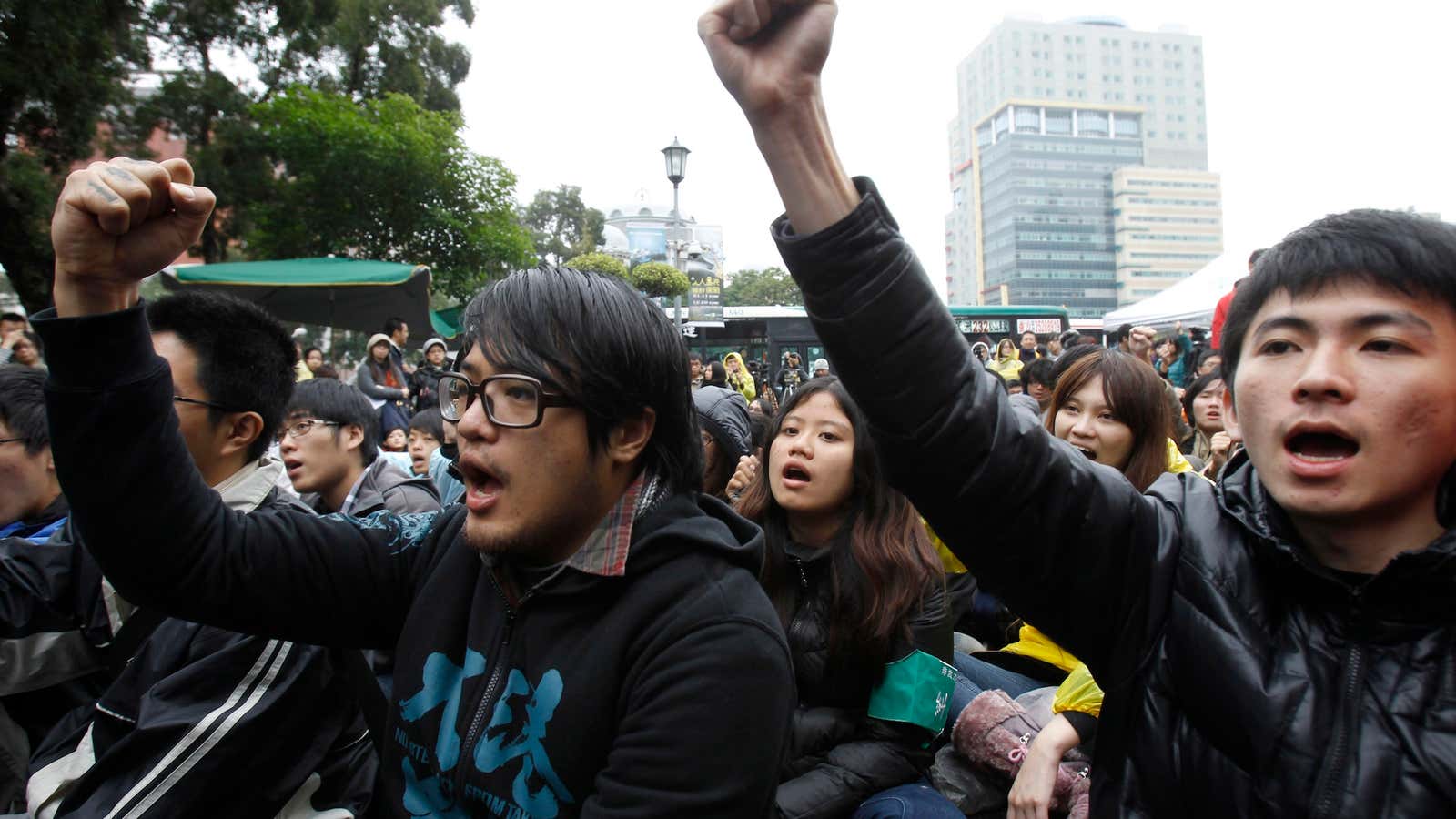Taiwan’s “Apple Daily”, the island’s most popular newspaper, is not a serious read. Inclined towards celebrity gossip and graphic coverage of sex and violence, the most popular story on its website at the time of writing was this salacious story (Chinese) about “foot hookers” in New York (women whose clients lick their feet).
But since Apple Daily’s parent Next Media announced it was selling the high circulation tabloid along with its other Taiwanese media brands last September, the democratic island has worked itself into a lather. Tens of thousands protested in the capital, Taipei, against Taiwan’s China-friendly President Ma Ying-jeow in January. Many called for the government to stop the sale of Next’s Taiwanese operations.
Now the Taipei administration is starting to listen. Taiwan’s media watchdog last weekend proposed new anti-monopoly rules that could kill the $601 million deal altogether.
The issue, as with most things the Taiwanese get angry about, is the island’s relationship with mainland China. The Beijing government claims Taiwan is part of China, and has 1,600 missiles trained on the island. But economic ties run deep. And the consortium planning to buy Next Media’s Taiwan operations, led by rice-cracker billionaire Tsai Eng Meng, is Beijing-friendly. So Taiwanese democracy and independence activists fear the island’s top circulation tabloid could become sympathetic to China’s Communist Party.
Jimmy Lai, the Hong Kong media tycoon who owns Next Media, is beloved of democracy activists for his anti-Beijing politics. His titles—which include a Hong Kong version of Apple Daily—generally take a strong anti-Communist position. Taiwan’s Apple Daily often carries cartoons poking fun at President Ma.
In contrast, Tsai already owns a pro-Beijing Taiwanese media group. He said in January that unification between Taiwan and the Chinese mainland “is going to happen sooner or later.” Those words would outrage the 45.6% of Taiwanese who voted for the unsuccessful, pro-independence Democratic Progressive Party in last year’s general elections.
Pro-independence Taiwanese view Lai as one of their own and see the potential sale of Next Media’s Taiwan assets as a major betrayal. In this news film, a Taiwanese activist said the sale would be “like a group of democracy activists are [being] sold to the Chinese Communists by Jimmy Lai.”
